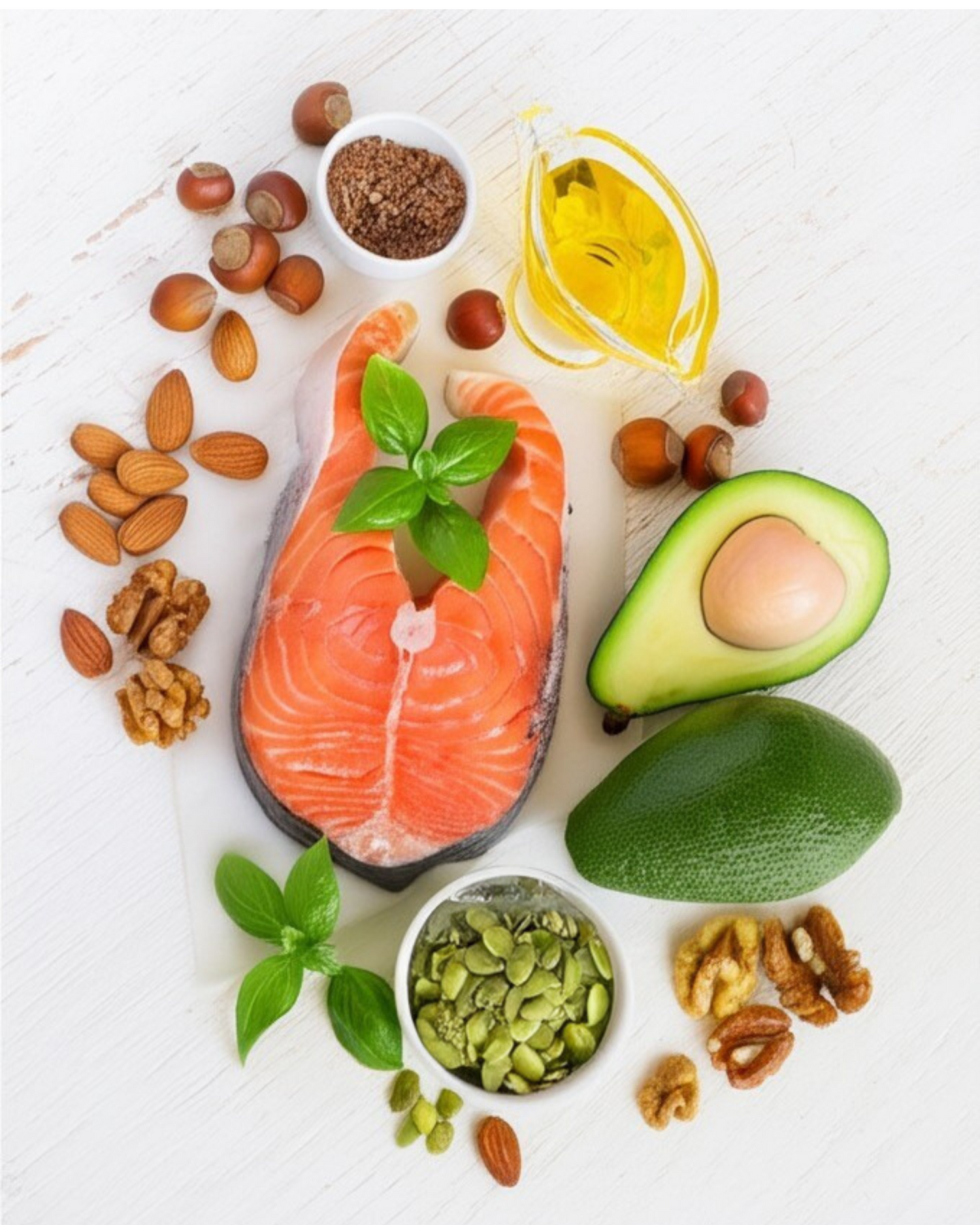Healthy nutrition & basics – the key to long-term health
Why a healthy diet is the foundation
Nutrition is much more than just the sum of calories and macronutrients.
It is the foundation for physical well-being, mental performance, and long-term health.
Unfortunately, nutrition myths and unconscious habits lead many people to have a false idea of what is truly healthy.
How do you want to control your life if you can't even control what you eat?
The most important basics
-
Macronutrients
Learn moreProteins, carbohydrates, fats – their role in the body and why balance is important.
-
Micronutrients
Learn moreVitamins, minerals – why we often neglect them and which foods are the best sources.
-
-

Why healthy eating is often misunderstood
Many people reach for supposedly healthy foods that are actually full of sugar, additives, or bad fats.
Advertising and misleading labels make it difficult to make the right choices.
Typical prejudices and nutrition myths
-
"Fat makes you fat"
Why healthy fats are vital and which fats are truly harmful (e.g., trans fats vs. omega-3 fatty acids).
-
"Sugar is sugar"
Why there's a difference between refined sugar and natural fructose.
-
"Diet products are healthier"
They often contain more sugar or additives.
-
"Low-carb is the best solution for everyone"
Why it depends on individual factors.
The Difference Between Healthy and Unhealthy Fats
Not all fats are the same – some are essential, while others are harmful to the body in the long term. It's crucial to know the differences

fats
Healthy fats
Unsaturated fats: Olive oil, avocados, nuts – support the cardiovascular system.
Omega-3 fatty acids: Salmon, chia seeds – have anti-inflammatory effects.

fats
Unhealthy fats
Trans fats: In fast food and convenience foods – increase the risk of cardiovascular disease.
Large amounts of saturated fats: Especially in processed meat products.
Conclusion: Fats are not inherently bad – the quality and quantity make the difference.
Sugar - The Silent Health Killer
Not all sugar is created equal. While natural fructose is safe in moderation, refined sugar often leads to blood sugar spikes and cravings.

Sugar
Why refined sugar is problematic
Blood sugar fluctuations: Lead to fatigue and cravings.
Insulin resistance: Can lead to diabetes in the long term.
Pro-inflammatory: Supports the formation of free radicals.

Sugar
Alternatives
Fruit sugar from natural sources: Fruit instead of processed sweets.
Natural sweeteners: Dates, honey – enjoy in moderation.
Did you know that even a single day without sugar can have positive effects on your body?
After just 24 hours, your blood sugar levels drop, which reduces inflammatory markers in the body and improves blood circulation in the skin – the first steps toward less inflammation and a brighter complexion!
Consider individual differences
-
There is no universally accepted "best diet." Everyone is different and has individual needs.
-
Genetics and lifestyle
Influencing factors - Age, activity level, health conditions.
Adaptation - Which diet suits your lifestyle.
-
Practical tips
Experiment with different approaches - low-carb, high-protein, vegan diet.
Listen to your body - What's good for you and what's not?
Emotional attachment to food
Eating is more than just consuming food – it is often emotionally charged.

Emotional attachment
Common challenges
Stress eating: Uncontrolled snacking during emotional stress.
Cultural habits: Traditional dishes and their significance.
Habits and patterns: Why we always reach for the same foods.

Emotional attachment
How to deal with it
Practice mindfulness: Ask yourself why you're eating right now—hunger or emotion?
Create new routines: Incorporate healthy alternatives into your daily routine.
Organic and regional
-
Fresh, unprocessed foods are the key to a healthy diet. But not everything that's advertised as "organic" is actually healthy.
-
Why regional is often better
Short transport routes: Fresher food with higher nutrient content.
Fewer pollutants: Less pesticides thanks to local production. -
Quality over quantity
Organic doesn’t always mean more nutritious: pay attention to the origin and processing.
Conclusion
Healthy eating begins with knowledge and awareness.
It's not about strict prohibitions, but about smart choices. Understand the basics, challenge myths, and develop a personalized nutrition plan that works for you.
Small changes can make a big difference – start today!
